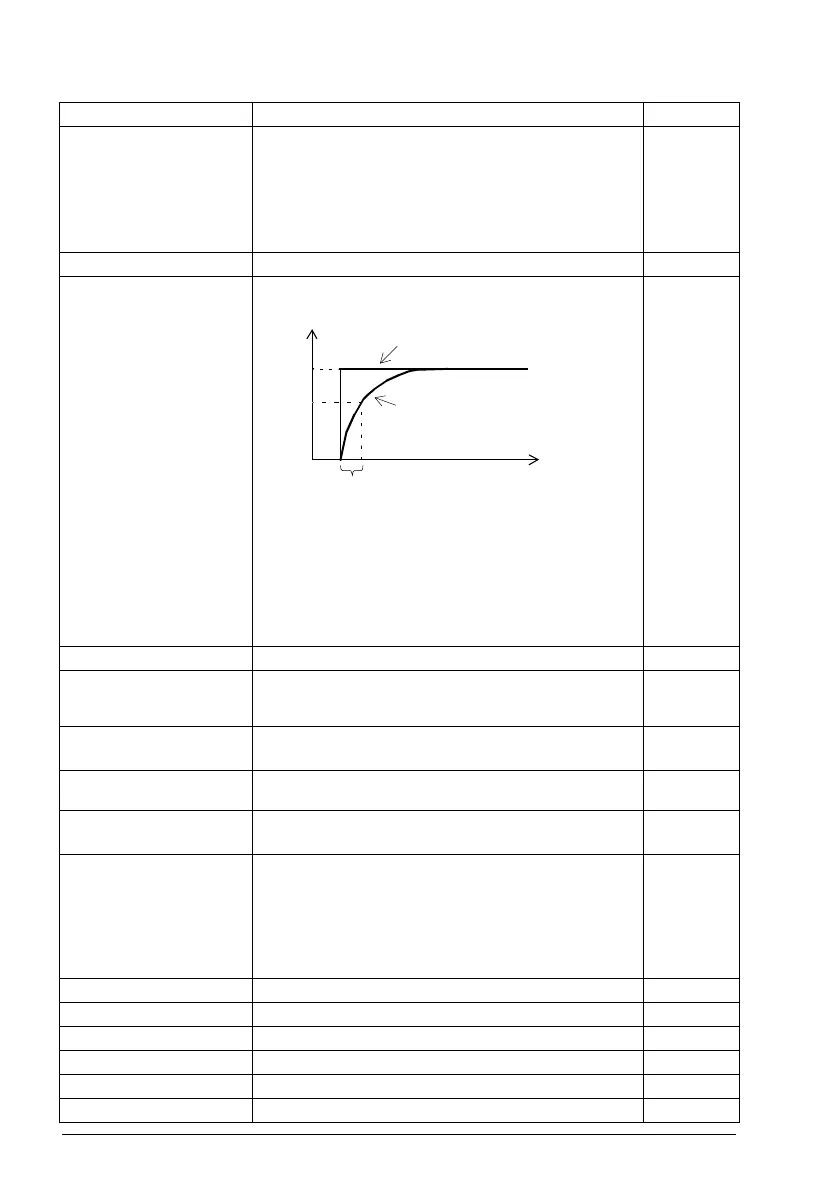302 Parameters
40.34 Set 1 derivation
time
Defines the derivation time of the process PID controller. The
derivative component at the controller output is calculated on
basis of two consecutive error values (E
K-1
and E
K
) according
to the following formula:
PID DERIV TIME × (E
K
- E
K-1
)/T
S
, in which
T
S
= 2 ms sample time
E = Error = Process reference - process feedback.
0.000 s
0.000…10.000 s Derivation time. 1000 = 1 s
40.35 Set 1 derivation
filter time
Defines the time constant of the 1-pole filter used to smooth
the derivative component of the process PID controller.
0.0 s
0.0…10.0 s Filter time constant. 10 = 1 s
40.36 Set 1 output min Defines the minimum limit for the process PID controller
output. Using the minimum and maximum limits, it is possible
to restrict the operation range.
0.0
-200000.00
…200000.00
Minimum limit for process PID controller output. 1 = 1
40.37 Set 1 output max Defines the maximum limit for the process PID controller
output. See parameter 40.36 Set 1 output min.
100.0
-200000.00
…200000.00
Maximum limit for process PID controller output. 1 = 1
40.38 Set 1 output freeze Freezes (or defines a source that can be used to freeze) the
output of the process PID controller, keeping the output at the
value it was before freeze was enabled. This feature can be
used when, for example, a sensor providing process
feedback must to be serviced without stopping the process.
1 = Process PID controller output frozen
See also parameter 40.30 Set 1 setpoint freeze enable.
Not selected
Not selected Process PID controller output not frozen. 0
Selected Process PID controller output frozen. 1
DI1 Digital input DI1 (10.02 DI delayed status, bit 0). 2
DI2 Digital input DI2 (10.02 DI delayed status, bit 1). 3
DI3 Digital input DI3 (10.02 DI delayed status, bit 2). 4
DI4 Digital input DI4 (10.02 DI delayed status, bit 3). 5
No. Name/Value Description Def/FbEq16
63
%
100
T
t
O = I × (1 - e
-t/T
)
I = filter input (step)
O = filter output
t = time
T = filter time constant
Unfiltered signal
Filtered signal
